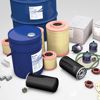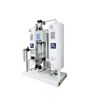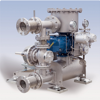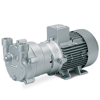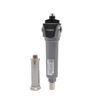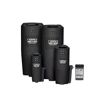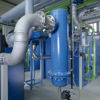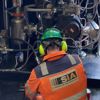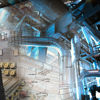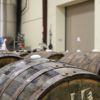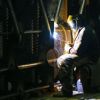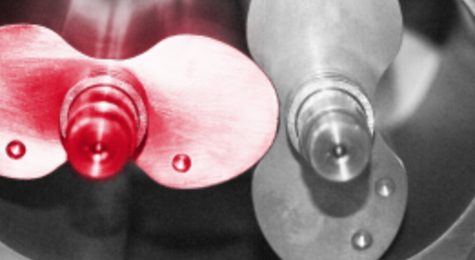Feeling the Heat: The Power of Heat Recovery in Air Compressor Systems
Are you tired of high energy bills and a less-than-efficient Air Compressor? Look no further! Introducing heat recovery in compressors - a game-changing solution that can not only save you money, by also help reduce your carbon footprint. In this blog, we'll dive into the ins and outs of how heat recovery works, the benefits it can bring to your business, and how you can get started with implementing it. So, whether you're looking to cut costs or do your part for the environment, keep reading to find out how heat recovery in compressors can be the answer you've been searching for.
1. Energy Consumption of Air compressors
Air compressors consume a significant amount of energy to compress and store atmospheric air. The energy consumption of an Air Compressor depends on several factors, including the size and type of the compressor, the pressure and flow rate of the Air Compressor, and the duration of operation.
Due to their high energy consumption Air compressors can have a significant impact on energy costs. In fact, the US Department of Energy estimated that compressed air systems account for up to 10% of the total electricity consumption in some industrial facilities.
To minimize the impact on energy costs, it’s important to perfect the energy usage of Air Compressor. This can be achieved through various means, such as conducting regular maintenance to ensure the compressor is running efficiently, implementing energy-efficient compressors, and utilising the potential of Heat Recovery.
2. What is Heat Recovery?
In an Air Compressor, around 94% of the energy needed to run the system is converted into heat. Often, this heat is expelled into the atmosphere or requires cooling fans or water to remove the heat from the system. While at the same time as this process, companies produce vast quantities of heat through hot water heating, space and room heating, or steam generation from pre-heated water.
Heat recovery refers to the capture and reuse of the heat generated during the compression process. Heat recovery can be used to increase the energy efficiency of Air Compressor by capturing the waste heat, and reusing it elsewhere in the facility, such as providing hot water for taps, heating for spaces including radiators, and pre-heating water for steam generation where needed.

3. Benefits of Heat Recovery
Implementing a heat recovery system in an Air Compressor can provide several benefits, including reduced energy costs, increased efficiency, and reduced carbon emissions.
One of the primary benefits of heat recovery is the potential to reduce energy costs. By capturing and reusing the waste heat generated during the compression process, a heat recovery system can significantly reduce the amount of energy to heat water or preheat boilers. This can lead to high energy savings, especially in industries where Air Compressor are used extensively. These energy and cost savings often create extremely short payback times for the investment of heat recovery.
In addition to reducing energy costs and increasing efficiency, heat recovery systems can also help to reduce carbon emissions. Through the process of capturing and reusing the heat normally expelled into the atmosphere, these systems reduce energy requirements elsewhere, reducing the overall carbon footprint of a building. This can be particularly beneficial for businesses that are looking to reduce their environmental impact and meet sustainability goals.
4. What Compressors are suitable for Heat Recovery?
Many modern rotary-type air compressors are available to be fitted with heat recovery systems. Scot Industrial Air recommends that heat recovery systems are considered where there is an opportunity to install the service. With a range of energy saving options, Scot Industrial Air can supply a personalised analysis for your air compressor.

5. How much could you save?
For example, consider an Air Compressor with an average load of 20m3/min at 8 bar, running for 8,000 hours per annum. If the electricity price is 13 pence per kWh and the gas price is 6 pence per kWh (indication only for example purposes) it's easy to see how the energy costs for this system can add up quickly.
However, by installing a heat recovery system, such as the Ultima range of Air Compressor from CompAir; substitution of a gas heater could save over £76,500 per year, and for an electric heater £135,000 per year. This means running cost reductions of up to 41% and 91% respectively when compared to a conventional air-cooled oil-free compressor.
By taking advantage of this simple and cost-effective solution, you could potentially save thousands of pounds per year on energy costs, making heat recovery a smart investment for any business looking to reduce its energy consumption and reduce costs.
To find out how much carbon emissions you could reduce in your business, use this free calculator to see your potential savings.
6. Next steps to Heat Recovery
Heat recovery is a simple and effective way to increase the energy efficiency of Air compressors, helping businesses and organizations save money on energy costs. In addition to reducing energy costs, heat recovery systems can also lower CO2 emissions and have no impact on the compressed air supply. Overall, there are many benefits of implementing a heat recovery system in an Air Compressor, making them a worthwhile investment for any business looking to improve its energy efficiency and reduce its energy costs.
If you're interested in learning more about how heat recovery can improve the energy efficiency of your Air Compressor and save you money, don't hesitate to contact us at Scot Industrial Air. Our team of experts is ready to help you assess your current system and supply the best solution for your needs. We install heat recovery systems that are easy to fit and maintain, and we can provide you with a personalized quote to help you get started. These systems can be created as part of a new Air Compressor or retrofitted onto an older system. Don't wait any longer to start saving on energy costs – contact us today to learn more.

